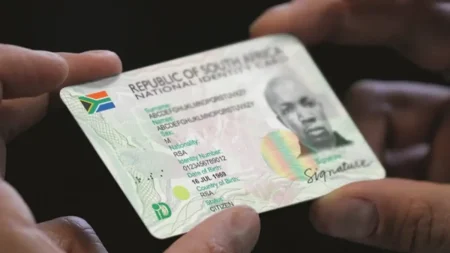Child custody battles can be emotionally overwhelming and financially straining. Many parents find themselves struggling to afford legal representation, which is often necessary to protect their parental rights. Fortunately, Legal Aid for child custody cases is available in South Africa to assist those who cannot afford a private lawyer.
This guide explains how to apply for Legal Aid for child custody cases, who qualifies, and the legal process involved.
Understanding Child Custody in South Africa
In South Africa, child custody—also referred to as parental responsibilities and rights—is governed by the Children’s Act 38 of 2005. The law prioritizes the best interests of the child in all custody decisions.
Types of Child Custody
- Sole Custody: One parent has full custody, while the other may have visitation rights.
- Joint Custody: Both parents share custody and decision-making responsibilities.
- Guardianship: A legal guardian is appointed if neither parent is suitable to care for the child.
If parents cannot agree on custody arrangements, the matter may go to court, where legal representation is necessary. If you cannot afford a lawyer, you may qualify for Legal Aid for child custody cases.
Who Qualifies for Legal Aid for Child Custody Cases?
Legal Aid South Africa (LASA) provides free or subsidized legal services for people who meet certain requirements. To qualify for Legal Aid for child custody cases, you must meet the following criteria:
1. Financial Means Test
LASA uses a means test to determine if you are financially eligible:
- If employed, your monthly income must be R7,400 or less.
- If unemployed, your overall financial situation is assessed.
- Your total assets (house, car, savings) must not exceed R640,000.
2. The Merit of the Case
Your case must have legal merit, meaning that there must be a valid dispute regarding child custody.
3. Citizenship Status
You must be a South African citizen or a permanent resident.
If you do not qualify for Legal Aid for child custody cases but cannot afford a private lawyer, you may receive subsidized legal aid, which means you pay a reduced fee.
How to Apply for Legal Aid for Child Custody Cases
If you believe you qualify for Legal Aid for child custody cases, follow these steps to apply:
Step 1: Prepare the Necessary Documents
Before applying, gather the following documents:
- Certified copy of your ID
- Proof of income (salary slip, UIF record, or SASSA grant statement)
- Proof of residence (utility bill or affidavit)
- Court documents (if a case has been filed)
- Child’s birth certificate
- Marriage or divorce certificate (if applicable)
Step 2: Visit a Legal Aid Office
Locate your nearest Legal Aid South Africa office by visiting their website (www.legal-aid.co.za) or calling 0800 110 110 (toll-free).
You can also apply at your nearest Magistrate’s Court, which can direct you to legal aid services.
Step 3: Complete the Application Form
At the legal aid office, you will fill out an application form, detailing your financial status and the nature of your child custody dispute.
Step 4: Case Evaluation
A legal aid officer will review:
- Whether you meet the financial eligibility criteria.
- Whether your case has legal merit.
- The type of legal assistance you require.
Step 5: Assignment of a Legal Representative
If your application is approved, Legal Aid South Africa will assign a lawyer or paralegal to represent you. They will help you:
- Negotiate custody arrangements.
- Represent you in court.
- Provide legal advice and support.
Alternative Legal Assistance Options
If you do not qualify for Legal Aid for child custody cases, consider these alternative affordable legal assistance options:
1. Pro Bono Lawyers
Some private law firms offer pro bono (free) legal services. Contact the Law Society of South Africa (LSSA) for referrals.
2. University Law Clinics
Many universities run law clinics, where final-year law students (under supervision) provide free legal help. Some notable university law clinics include:
- Wits Law Clinic (Johannesburg)
- University of Cape Town Law Clinic
- Stellenbosch University Law Clinic
3. Office of the Family Advocate
The Family Advocate assists in custody disputes, offering free mediation services to help parents reach agreements without going to court.
4. Community Legal Advice Centres
Many NGOs and community organizations provide legal advice and representation in child custody disputes.
What to Expect in a Child Custody Case
Once you receive Legal Aid for child custody cases, your lawyer will guide you through the child custody process, which typically involves:
1. Mediation
Before court proceedings, parents are encouraged to undergo mediation. A family advocate or mediator helps parents negotiate a custody agreement.
2. Court Proceedings
If mediation fails, the case will go to the Children’s Court or High Court.
3. Factors Considered by the Court
The court considers:
- The best interests of the child.
- Each parent’s ability to provide a stable home.
- The relationship between the child and each parent.
- The child’s preferences (if they are old enough).
- Any history of domestic violence, neglect, or abuse.
4. Court Decision
The judge will issue a custody order, which both parents must follow. If either parent disagrees, they can appeal the decision.
If you are involved in a child custody battle and cannot afford legal representation, Legal Aid for child custody cases can provide free or low-cost legal assistance.
Learn More: Child Maintenance Court Cases: How to Speed Up the Process
By applying through Legal Aid South Africa, you can receive the legal support necessary to navigate your custody dispute. If you do not qualify, consider alternative legal options such as pro bono lawyers, university law clinics, or the Office of the Family Advocate.
For more information, visit www.legal-aid.co.za or call 0800 110 110.










